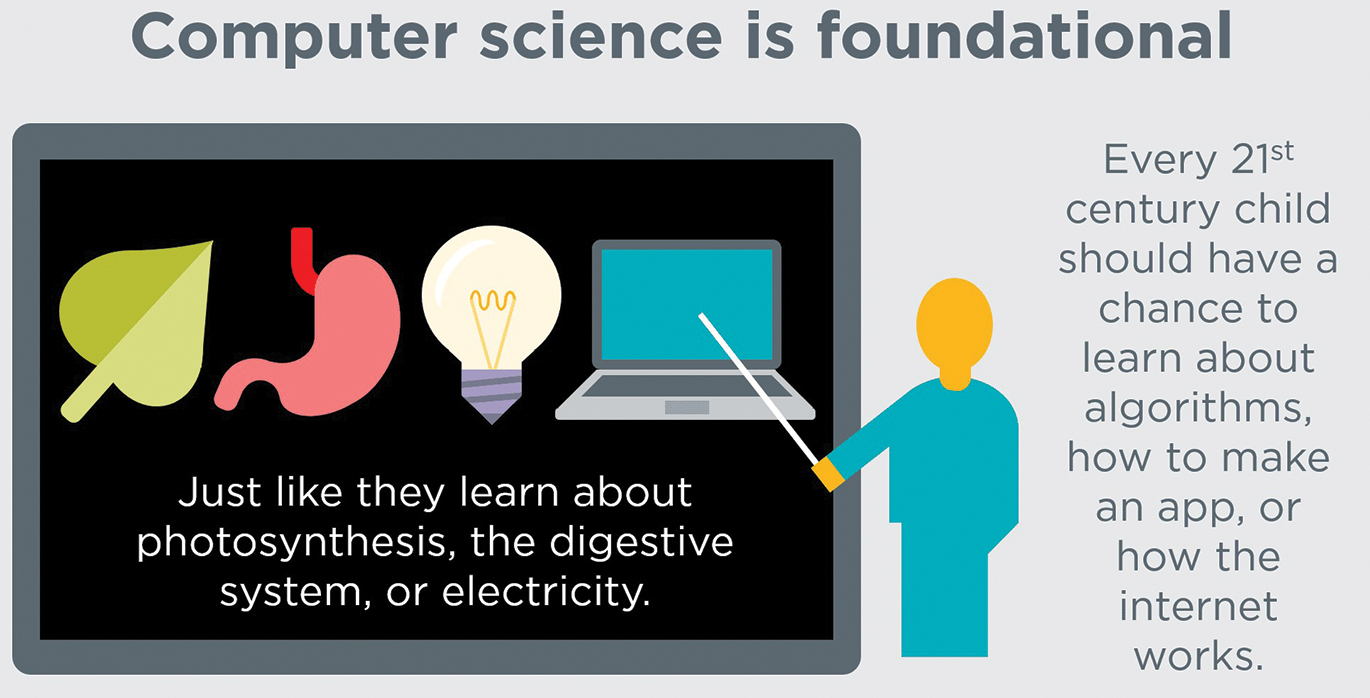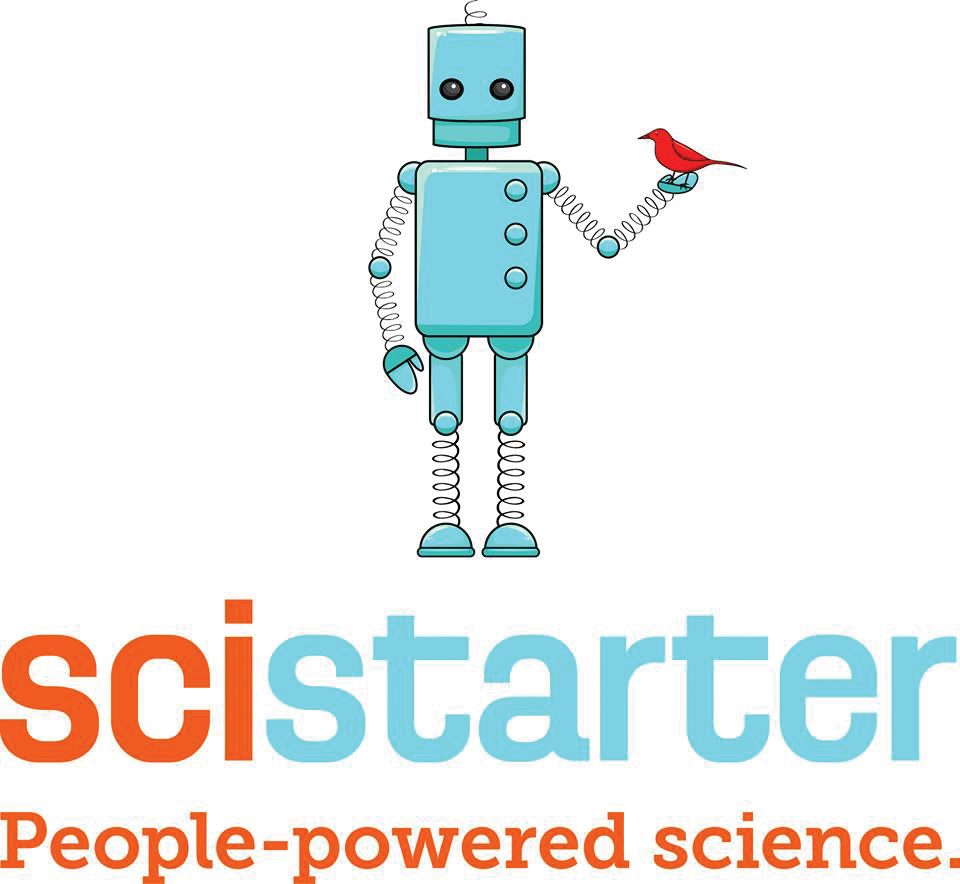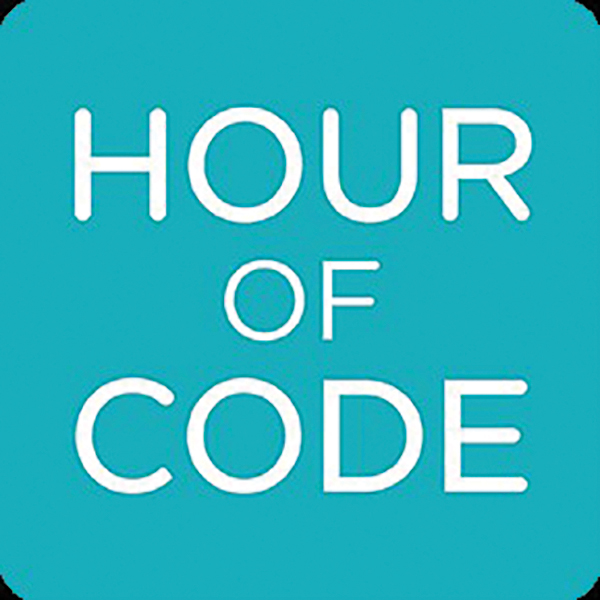Citizen Science
Advance technology literacy and bring learners’ 21st-century skills up to code with the Hour of Code!
By JILL NUGENT
Collaborative science projects you can join
The digital age is upon us and technology serves as a tool to help advance scientific discovery; today, technology also permeates many aspects of our daily lives, including communication, transportation, education, entertainment, and commerce. Future careers will be shaped and impacted by advances in technology; therefore, today’s learners must have basic levels of technology literacy, including programming skills, such as coding. Coding involves using a programming language to direct a computer to do something that you want it to do. Coding and fluency in programming languages represent a requisite skill for today’s learners (see Figure 1).

The Hour of Code helps to address this growing global need. ’s Hour of Code is a worldwide event that takes place each year during Computer Science Education Week. This year’s Hour of Code is scheduled for December 9–15, 2019. The overall mission of the Hour of Code is to provide an opportunity for all learners to engage in computer science through coding activities. Since the Hour of Code’s 2013 launch, 100 million students have been introduced to coding and computer science programming during the annual event. The goal for the 2019 Hour of Code event is to engage 10 million individuals. You are invited to participate in this exciting global event with your classroom! The Hour of Code provides a fun, collegial way for learners of all ages to cultivate 21st-century skills while learning the basics of coding.
Project goal: Provide an opportunity for every learner to try computer science programming/coding for one hour.
Your task: Complete a tutorial on programming and try a coding activity online.
Science discipline: Technology and applications of science
The Hour of Code (see “Project Home”) provides all of the coding activities, tutorials, information, and resources to get started and to lead a session (see “Helpful Project Links”). No background or experience in coding is necessary to participate in the Hour of Code, and coding activities are available for all ages, from kindergarten to adult. Coding events can be held in the classroom, across a school building, in the community, in afterschool programs, or at home. The Hour of Code encourages participants to share their coding events on social media, and the project website provides tools, templates, hashtags, and infographics to help participants spread the word about their event. For educators, the Hour of Code also offers lesson plans, posters, videos, printable student certificates, and additional classroom resources; the program also provides an example outline to guide and facilitate an hourlong coding session (see “How to Teach an Hour of Code”).
Plan to join the Hour of Code global event this December 9–15, and help your students gain experience in key 21st-century skills. Be sure to celebrate your students’ Hour of Code success with certificates and stickers that the program website makes available in the form of online templates. In addition, the program also provides extension activities, lesson plans, and ideas for coding after the event. Remember, just like in science, coding involves problem solving, thinking outside of the box, communication, collaboration, and critical thinking. By participating in the event, students gain a new skill as well as the opportunity to develop their computational thinking practices.
This column is the result of a partnership between SciStarter and the National Science Teaching Association. For more information about SciStarter and other citizen science projects, please visit www.scistarter.org.

Hour of Code at a glance
When: The Hour of Code activities are online and available anytime. The annual Hour of Code event takes place each year during Computer Science Education Week, which is December 9–15, 2019.
How: Engage students in one hour of coding activity from the Hour of Code website. (For a list of coding activities, see “Helpful Project Links: Activities”)
Where: Global
Time needed: One hour (or more!)
Special equipment needed: None
Cost: Free
Contact for more information: Contact form available via https://support.code.org/hc/en-us/requests/new
Safety: As with any science lab, classroom, or field activity, always ensure that you are following recommended safety practices; for more information on safety in the science classroom visit www.nsta.org/safety.



